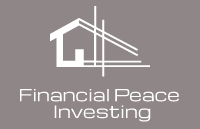
Let’s delve into the importance of investing in your most valuable asset – your mind – through financial education:
In the realm of personal finance, the power of knowledge and education cannot be overstated. We cannot overstate the significance of investing in your own financial education as a means to achieve lasting wealth and financial freedom. By dedicating time and effort to learning about money management, investing, and financial strategies, you can unlock the potential to make informed decisions that will shape your financial future.
Just as you invest in stocks, real estate, or other assets, investing in your mind through financial education is an essential component of building wealth. It starts with developing a mindset that values lifelong learning and personal growth. Recognize that your financial education is an ongoing journey, and commit to continually expanding your knowledge and understanding of personal finance concepts.
Financial education equips you with the tools to make informed decisions and navigate the complex world of money. It helps you develop a solid foundation of financial literacy, enabling you to understand concepts such as budgeting, debt management, investing, and retirement planning. Armed with this knowledge, you gain greater control over your financial situation and can make strategic choices that align with your goals and values.
Moreover, financial education empowers you to identify and seize opportunities. It provides the analytical skills to assess investments, evaluate risks, and recognize trends in the market. By understanding financial principles, you can make calculated decisions that have the potential to generate wealth and create financial security.
Investing in your mind through financial education also builds confidence. It allows you to have more meaningful conversations about money, engage with financial professionals, and take charge of your financial destiny. This confidence helps you navigate financial challenges, overcome obstacles, and adapt to changing circumstances, ultimately positioning you for long-term success.
Lastly, financial education provides a strong foundation for teaching and inspiring future generations. As you develop your knowledge, you can pass on these valuable lessons to your children, family, and friends. By instilling financial literacy in others, you contribute to a cycle of empowered individuals who are better equipped to make wise financial decisions.
In conclusion, investing in your most valuable asset – your mind – through financial education is a transformative step toward financial freedom. It equips you with knowledge, skills, and confidence to make informed decisions, identify opportunities, and build wealth. By committing to lifelong learning and embracing the teachings of “Rich Dad Poor Dad” and “Financial Peace University,” you empower yourself to take control of your financial future and inspire others along the way. As Robert Kiyosaki wisely said, “The most important thing is that you choose the right teachers and friends and that you learn from them how to be rich, not poor.”
Let’s elaborate on several key ideas from “Rich Dad Poor Dad” by Robert T. Kiyosaki that highlights how a change in mindset is the first step towards investing:
- “Do not work for money, let money work for you”: This idea challenges the traditional mindset of working solely for a paycheck. Instead, it emphasizes the importance of building assets that generate income and create wealth. By investing in assets such as real estate, stocks, or businesses, you shift from being dependent on a job to having your money work for you and generate passive income. This change in mindset opens up possibilities for financial freedom and long-term wealth accumulation.
- “Know what is your asset, what is your liability”: Understanding the difference between assets and liabilities is crucial in financial education. Assets are things that put money in your pocket, such as income-generating properties or investments. On the other hand, liabilities are things that take money out of your pocket, such as loans or excessive consumer spending. By accurately identifying your assets and liabilities, you can make informed decisions about where to allocate your resources and focus on building a strong asset column.
- “Avoid debt, build assets”: Debt can be a significant obstacle to financial independence. The mindset shift here is to focus on minimizing and managing debt while prioritizing the accumulation of income-generating assets. By avoiding excessive debt and redirecting funds towards building assets, you can create a solid financial foundation and increase your wealth over time.
- “Set goals for financial peace, not just financial freedom”: While financial freedom is often the ultimate goal, “Rich Dad Poor Dad” emphasizes the importance of aiming for financial peace first. Financial peace means achieving a level of financial security and stability that allows you to pursue your passions and interests without being solely driven by the need for money. This mindset shift prioritizes the pursuit of a fulfilling and balanced life, where money serves as a tool to support your goals and aspirations.
- “Study for skills, wisdom, not only knowledge, and see opportunities”: Expanding your knowledge is important, but “Rich Dad Poor Dad” encourages investing in acquiring practical skills and wisdom that can be applied in the real world. By continuously learning and developing valuable skills, you increase your ability to identify and seize opportunities. This mindset shift emphasizes the importance of a well-rounded education that goes beyond traditional schooling, fostering a mindset of adaptability, creativity, and entrepreneurial thinking.
- “Practice generosity and help others financially when you can”: A change in mindset also involves embracing a spirit of generosity and using your financial success to make a positive impact on others. By giving back and helping others financially when possible, you not only contribute to the well-being of your community but also cultivate a mindset of abundance. This mindset shift recognizes the interconnectedness of wealth and encourages a holistic approach to financial success.
In summary, a change in mindset is the first step toward investing. By shifting our perspective to let money work for us, identifying assets versus liabilities, prioritizing asset building over excessive debt, seeking financial peace, acquiring practical skills and wisdom, and practicing generosity, we lay the foundation for a successful and fulfilling financial journey. Remember, investing in our mindset and education is a lifelong pursuit that sets the stage for long-term wealth creation and personal growth.



